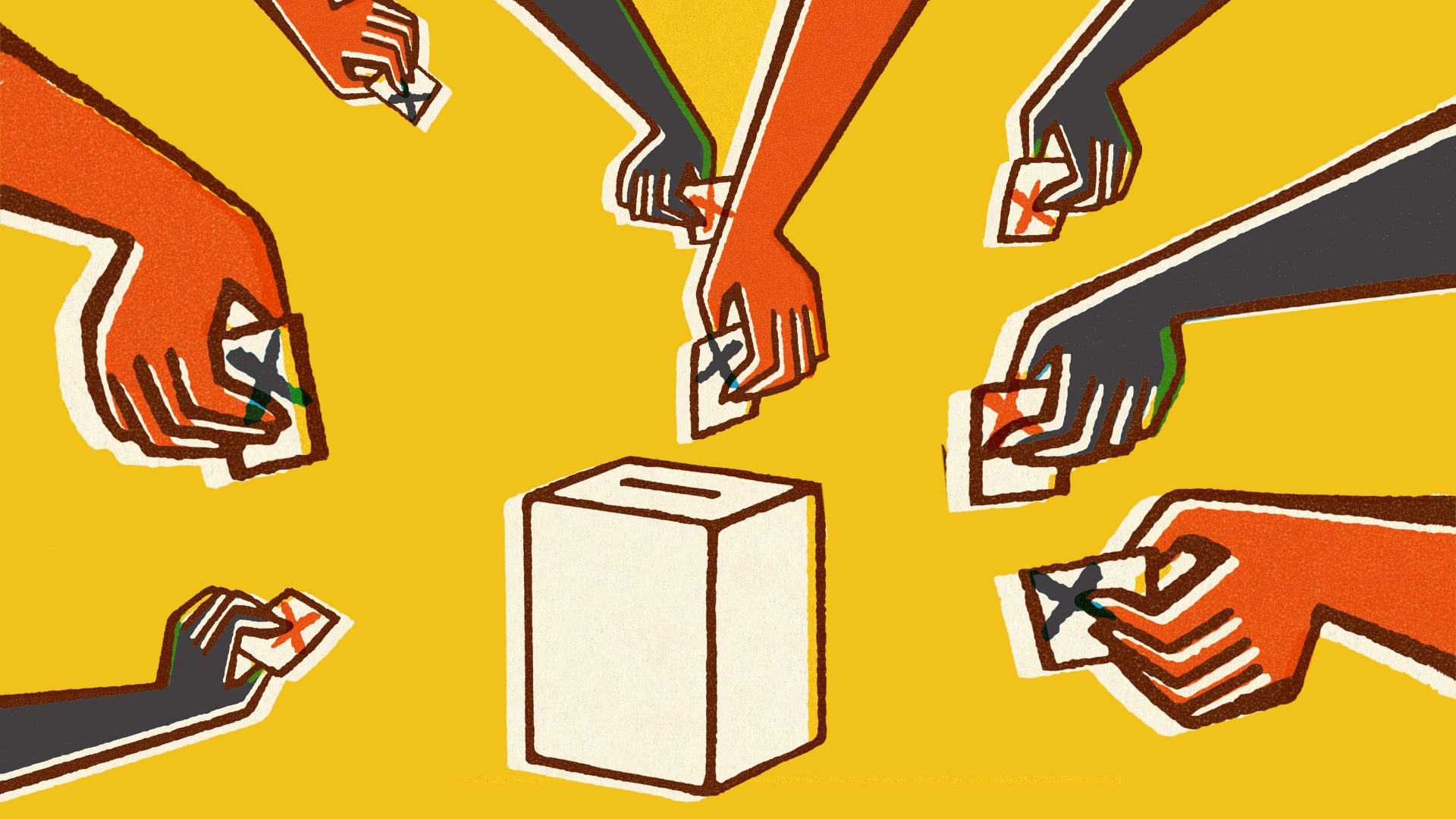Do you remember the “only in Berlin” syndrome mentioned in TNE back in November last year? To sum it up: it’s an administration’s complete lack of competence, combined with a total resistance to change, bordering on obtuseness.
Before you say that Berlin doesn’t have a unique claim to all of that, let me remind you of last year’s election fuck-up, which commentators thought was worthy of a developing country – or even a dictatorship. That’s unfair. Either of those would have done a much better job.
Berliners were meant to be voting for candidates for the Bundestag, as well as the Berlin House of Representatives. The whole thing was a farce. Votes were lost. Some voting cards listed the wrong candidates. The elections also happened to coincide with the day of the Berlin marathon, meaning large parts of the city were shut down, adding to the atmosphere of disarray. It was such a disaster the vote is being run again – 1.3 million Berliners will get to re-cast their votes.
Obviously, local authorities – being local Berlin authorities – still don’t want the election to be repeated, claiming that there was no statistical effect. We will never know whether that’s true, as, unfortunately, there are no statistics available on the number of non-voters.
Berlin’s constitutional court was not impressed. In a recent hearing, the judges made clear that the election day records showed outright chaos. Berlin voting stations had been closed when they should have been open and were open when they should have been closed, ie after six o’clock, when exit polls and projections went live.
Ballot papers were missing, had been mixed up between constituencies, or simply photocopied. There was a massive shortage of voting booths and in some cases provisional cardboard ballot boxes were used when the proper ones were full. Even police cars trying to resupply the stations couldn’t get through because of the marathon.
“The integrity of the election result is considerably damaged,” the judges concluded, “because of the multitude and severity of election flaws. Thousands of voters are affected.”
Given this unambiguous finding, there’s little doubt about the court’s final decision, which is due in November: it will declare the election results invalid.
That is the local, Berlin reaction. At the national level, the federal returning officer has – for the first time in German history – filed an objection against the validity of the election. He added that this wasn’t a “large city issue” because Hamburg and Munich had coped easily. Cologne even managed to defuse a second world war bomb on election day without major disruption.
Only in Berlin had there been “a complete and systematic failure”. So he insisted on a re-election in at least six of the 12 Berlin federal constituencies.
But the federal returning officer is not the one with the final say. It is the Bundestag, Germany’s parliament itself, that makes the call, even though that amounts to a huge conflict of interest. But then again, the governing coalition currently exercises “politics as the art of making selfish desires seem like the national interest”, to quote Thomas Sowell, the American political theorist. A new election in Berlin, so the government’s argument goes, would be unreasonable, costly, and disrupt parliamentary procedure in the middle of the legislative period. In other words: a couple of fellow MPs could lose their seats.
So far, the three governing parties are only willing to repeat the election in 300 (of 2,245) Berlin voting stations, and they want to do it in a way that will protect all of their directly elected MPs.
This minimally invasive (and maximally irritating) approach is particularly revealing of the smaller coalition parties’ double standards. They claim to spearhead political morality (Greens) and the rule of law (Liberals). But in this case, they are failing spectacularly.
True, snap elections are a rarity in Germany, so this re-run brings up all sorts of constitutional questions. All of these can be solved.
But to prove that German democracy is up and running, there’s just one solution: to disprove those who claim that deep state dark forces rule over us. As the Berlin judges put it: correcting mistakes is more important than keeping the status quo. If parliament doesn’t realise this, hopefully our federal constitutional court will. Because nothing short of a complete re-run could legitimise members of parliament and rebuild people’s trust in democracy.




